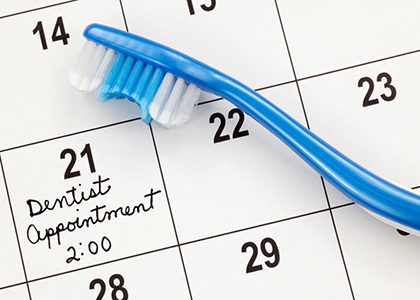Dead Tooth: Symptoms, Causes, Complications, and Treatment
If the severe toothache you've been suffering from suddenly stops, it might be a sign that the tooth has died, which can pose health risks to your entire body. In this blog post, you'll learn about the treatment options available for a dead tooth and we outline the symptoms so you can recognize this dangerous condition sooner.
Causes and Possible Complications of a Dead Tooth Pulp A tooth is considered dead if it no longer has a connection to the pulp, meaning it can no longer receive nutrients.
There are various reasons for tooth death.
Most often, it's caused by pulpitis, or inflammation of the tooth pulp, but sometimes an accident or trauma is responsible for the damage to the pulp.
If someone does not regularly care for their teeth, there is a risk of tooth decay, which, if untreated, can spread and lead to inflammation of the tooth root. Initially, decay only damages the tooth externally, but later it can reach the tooth nerve, often causing severe pain. If the tooth pulp becomes infected by bacteria and the nutrient supply is interrupted, the tooth nerve and eventually the entire tooth will die. Molar teeth with deep fillings are particularly prone to decay.
Chronic, untreated gum disease can also lead to pulp death.
A dead tooth needs to be treated as soon as possible because if it's not, bacteria from the dead tooth pulp can spread, potentially leading to the loss of adjacent teeth or infection of the jawbone and gums.
Symptoms of a Dead Tooth Tooth death is often preceded by inflammation, which usually causes severe pain. However, if the pain suddenly stops, it's not a reason to celebrate, as the diminishing pain is usually due to a dead tooth nerve. There are other signs that indicate a dead tooth:
The affected tooth loses its luster and becomes grayish in color.
The tooth tissue loses its stability, which can lead to pieces of the tooth breaking off.
Pain upon biting occurs when the tooth is stressed.
Swelling may be observed (only in cases of inflammation).
The dentist can determine if a tooth is still alive using a vitality test. This involves using a cold-soaked cotton ball, which is held against the tooth. If the patient feels the cold, the tooth nerve is still alive. If the patient feels nothing, the dentist taps on the tooth (percussion test). If there is no reaction, it is a further sign of a dead tooth root. An X-ray can also provide clarification.
X-ray of a Dead Tooth A telling sign on an X-ray is if there is a dark halo around the root tip, which looks like a large black ring surrounding the tooth root. This phenomenon also suggests an abscess, indicating a large-scale nerve infection. A constricted root canal, which appears to be shrinking on the X-ray, also indicates tooth death.
Treatment and Healing of a Dead Tooth Depending on how advanced the inflammation is on the affected tooth, various treatment options are available. If the inflammation is too advanced, or the tooth is loose or brittle, it may not be salvageable. In such cases, the dentist will have no choice but to extract the tooth to prevent chronic inflammation in the body. Treatment is always necessary, as a dead tooth can have far-reaching health consequences.
Root Canal Treatment of a Dead Tooth Root canal treatment can be performed on dead teeth if the tooth can still be saved and is needed, for example, for a dental bridge. During the procedure, the dentist removes dead tissues and bacteria from the root canal. After preparation, the root canals are filled with a special sealing material, and the tooth is restored to match the appearance of the other teeth. Root canal treatment can preserve the tooth for many years. In cases of a dead tooth under a crown, root canal treatment is also an option. Usually, the crown is removed to perform the procedure.
Whitening a Dead, Discolored Tooth Whitening a dead tooth is somewhat more challenging. Since the discoloration is inside the enamel of the dead tooth, whitening material needs to be placed in the coronal part of the tooth canal to achieve the desired result.
Black Teeth? Visit the Professional Team at Fehérvári Dental! Since our establishment in 1997, we strive to provide your family with the highest quality and comprehensive care, from toddlers to great-grandparents. Our specialists cover all areas of dentistry, so complex treatments requiring multiple dental specialists can be managed on-site. Our team's professional and coordinated operation is evident throughout the entire care process—from specialist consultations to administrative tasks.
Our dental practice represents high standards in both layout and technical equipment. Our three-story clinic features three modern treatment rooms and a diagnostic imaging area (panoramic X-ray, teleradiography, CBCT, intraoral). A spacious elevator connects the floors, which is conveniently accessible for patients with limited mobility and those with strollers.
Book your appointment now!




















